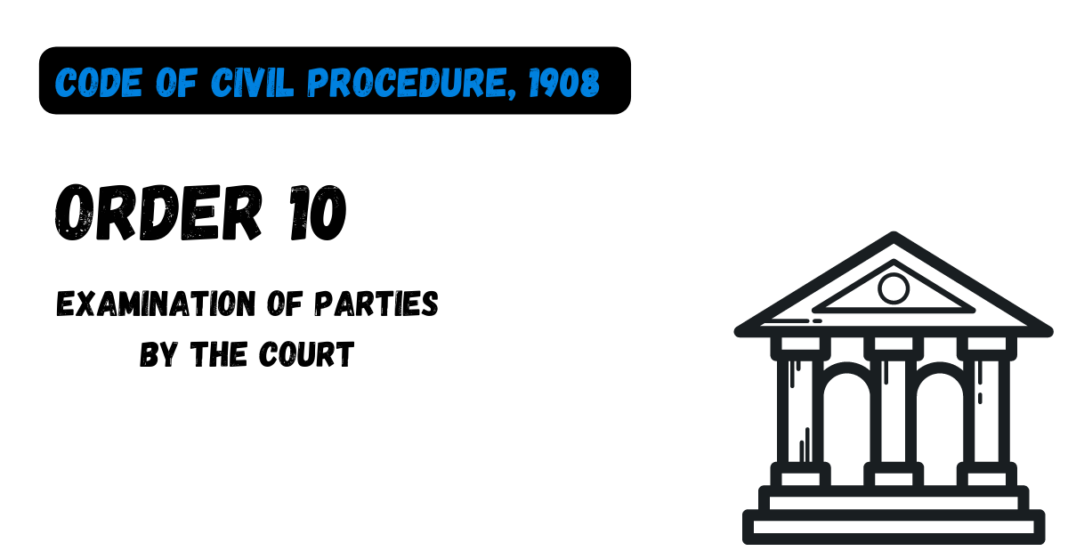1. Ascertainment whether allegations in pleadings are admitted or denied.—At the first hearing of the suit the Court shall ascertain from each party or his pleader whether he admits or denies such allegations of fact as are made in the plaint or written statement (if any) of the opposite party, and as are not expressly or by necessary implication admitted or denied by the party against whom they are made. The Court shall record such admissions and denials.
1A. Direction of the court to opt for any one mode of alternative dispute resolution.—After recording the admissions and denials, the court shall direct the parties to the suit to opt either mode of the settlement outside the court as specified in sub-section (1) of section 89. On the option of the parties, the court shall fix the date of appearance before such forum or authority as may be opted by the parties.
1B. Appearance before the conciliatory forum or authority.—Where a suit is referred under rule 1A, the parties shall appear before such forum or authority for conciliation of the suit.
1C. Appearance before the court consequent to the failure of efforts of conciliation.—Where a suit is referred under rule 1A, and the presiding officer of conciliation forum or authority is satisfied that it would not be proper in the interest of justice to proceed with the matter further, then, it shall refer the matter again to the court and direct the parties to appear before the court on the date fixed by it.
2. Oral examination of party, or companion of party.—(1) At the first hearing of the suit, the Court—
(a) shall, with a view to elucidating matters in controversy in the suit examine orally such of the parties to the suit appearing in person or present in Court, as it deems fit; and
(b) may orally examine any person, able to answer any material question relating to the suit, by whom any party appearing in person or present in Court or his pleader is accompanied.
(2) At any subsequent hearing, the Court may orally examine any party appearing in person or present in Court, or any person, able to answer any material question relating to the suit, by whom such party or his pleader is accompanied.
(3) The Court may, if it thinks fit, put in the course of an examination under this rule questions suggested by either party.
3. Substance of examination to be written.—The substance of the examination shall be reduced to writing by the Judge, and shall form part of the record.
4. Consequence of refusal or inability of pleader to answer.—(1) Where the pleader of any party who appears by a pleader or any such person accompanying a pleader as is referred to in rule 2, refuses or is unable to answer any material question relating to the suit which the Court is of opinion that the party whom he represents ought to answer, and is likely to be able to answer if interrogated in person, the Court may postpone the hearing of the suit to a day not later than seven days from the date of first hearing and direct that such party shall appear in person on such day.
(2) If such party fails without lawful excuse to appear in person on the day so appointed, the Court may pronounce judgment against him, or make such order in relation to the suit as it thinks fit.





